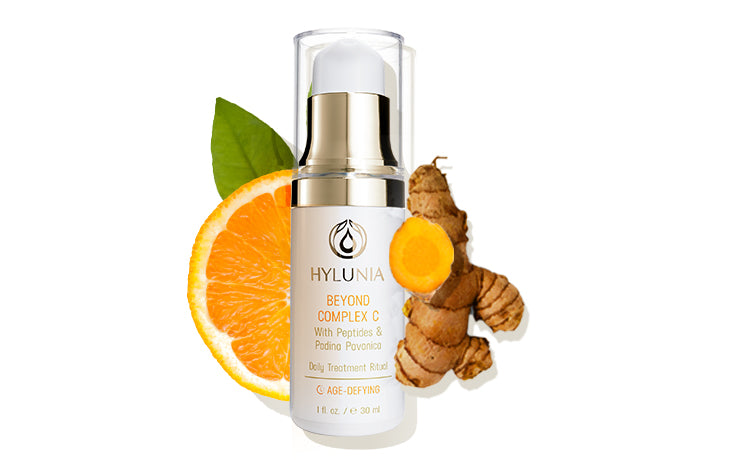Psoriasis
What is Psoriasis?
Psoriasis is a chronic skin condition that causes scaling and inflammation of the skin. Psoriasis typically appears in patches of red raised skin with thick silver or white scales.
According to The American Academy of Dermatology, psoriasis s a chronic (long-lasting) disease. It develops when a person’s immune system sends faulty signals that tell skin cells to grow too quickly. New skin cells form in days rather than weeks. The body does not shed these excess skin cells. The skin cells pile up on the surface of the skin, causing patches of psoriasis to appear.
Eczema and psoriasis are not the same thing. For more information about eczema, click here.
Signs of Psoriasis
The signs of the different types of psoriasis are:
- Redness covered with silver-white scales
- Inflamed skin
- Itching
- Cracked skin
- Bleeding
- Scaly lesions
- Flaking silver-white scaly lesions
- Thickening of lesions due to scratching
- Raised lesions
- Bright red lesions
- Smooth lesions
- Pain
- Swelling
- Pustules, pustules that burst, pus
- Burning
- Rash
- Yellow/red nail discoloration
- Pits in the nails
- Lines across the nails
- Areas of white on the nail
- Skin under the nail bed thickening
- Nail crumbling
- Small black lines from the tip of the nail to the cuticle
- Red spotted lunula of nail
- Nail fungal infection
- Red patches on the scalp covered in silver-white scales
- Hair loss of the scalp
- Extreme itching of the scalp
- Red patches anywhere on the scalp, but most often affects the back of the head.
- Swollen, stiff, painful joints
- Redness of the eye
- Blurred vision
- Sensitivity to light
- Eye pain
What Causes Psoriasis?
The most common triggers are psoriasis include:
- Stress
- Abnormalities in the immune system
- Genetics
- Injury
- Certain medications
- Bacterial or viral infections
- Cold weather
- Smoking
- Too much alcohol
- Allergies
- Diet
- Dry air
- Insect bites
- Increased skin friction
- Low levels of calcium
- Too much sunlight
- Too little sunlight
Types of Psoriasis
There are different types of psoriasis:
|
Type |
What it is |
|
Plaque psoriasis (also called psoriasis vulgaris) |
This type of psoriasis often causes thick patches of skin that are covered with slivery-white scales. |
|
Guttate psoriasis
|
This type of psoriasis causes small spots that can show up all over the skin. |
|
Pustular psoriasis
|
This type of psoriasis causes pus-filled bumps that usually appear on the foot or hand. |
|
Inverse psoriasis (also called flexural psoriasis or intertriginous psoriasis) |
This type of psoriasis develops in areas where skin touches skin, such as the armpit. |
|
Erythrodermic psoriasis (also called exfoliative psoriasis) |
This type of psoriasis can cause the skin to look like it is badly burned. |
Managing Psoriasis
There are several ways to manage psoriasis:
Skin Care Regimen
- Take a warm bath for 15 minutes. Add bath salts, oil, or oatmeal to help soothe skin.
- Only shower and bathe with lukewarm water.
- Try to keep showers and baths short.
- Be sure to choose a fragrance-free cleanser.
- Pat your skin dry, never rub skin dry.
- Moisturize immediately after showering or bathing while skin is still damp.
- Use a lighter moisturizer during the day and thicker cream at night.
- Use a shaving cream or gel made for sensitive skin.
- Use an electric razor if you don’t like shaving blades.
- Disguise psoriasis on the face with liquid-based foundations and concealer. They are less drying and cover imperfections better than powder versions.
- Cover affected areas of skin with ointment and then wrap it in a bandage before going to bed.
Hair Care Regimen
- Try medicated shampoo containing tar.
- Use a non-medicated conditioner following a medicated shampoo to disguise the unwelcoming smell of the shampoo.
- Make sure to use conditioner to help moisturize your scalp and relive dryness.
- Avoid hair dryers. This can increase scalp dryness.
- Be careful with hot styling tools these may increase scalp dryness.
- Try ammonia-free hair color, its much gentler on your scalp.
Nail Care Regimen
- Keep nails short and smooth.
- Stay away from acrylic nails.
- Keep nails painted to hide any discoloration.
Diet
- Stay away from foods high in saturated and trans fats. These may trigger symptoms.
- Be sure to get enough folic acid.
- Consume omega-3 fatty acids, especially those found in fish oils. These have anti-inflammatory properties that work against psoriasis.
- Some people believe cutting out sugar, caffeine, white flour, and gluten help avoid triggering psoriasis.
Lifestyle
- Get 10-15 minutes a day of sunlight.
- Consult with your doctor before beginning any new medication to make sure you don’t trigger or make your psoriasis worse.
- Try meditating, some people clear psoriasis symptoms this way.
- Avoid heavy drinking.
- Avoid smoking.
- Try going on a diet if you need to. Some doctors believe this will lessen your chance of flare-ups.
- Avoid stress and anxiety.
Hylunia Psoriasis Ritual
|
Ritual Step |
Purpose |
Hylunia Product |
|
Step 1: |
Cleanse |
|
|
Step 2: |
Tone |
Neroli Mist or |
|
Step 3: |
Moisturize |
|
|
Weekly Ritual: |
Infusing Mask |
|
|
Body |
Wash |
|
|
Body |
Body |
|
|
Body |
Exfoliate |
|
|
Kit |
System Starter |
|
|
Kit |
System Starter |
Ingredients that Help Psoriasis
Glycerin
Dimethicone


